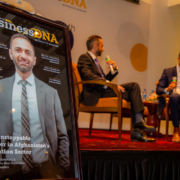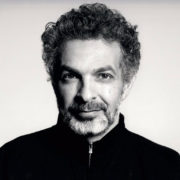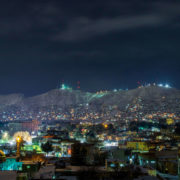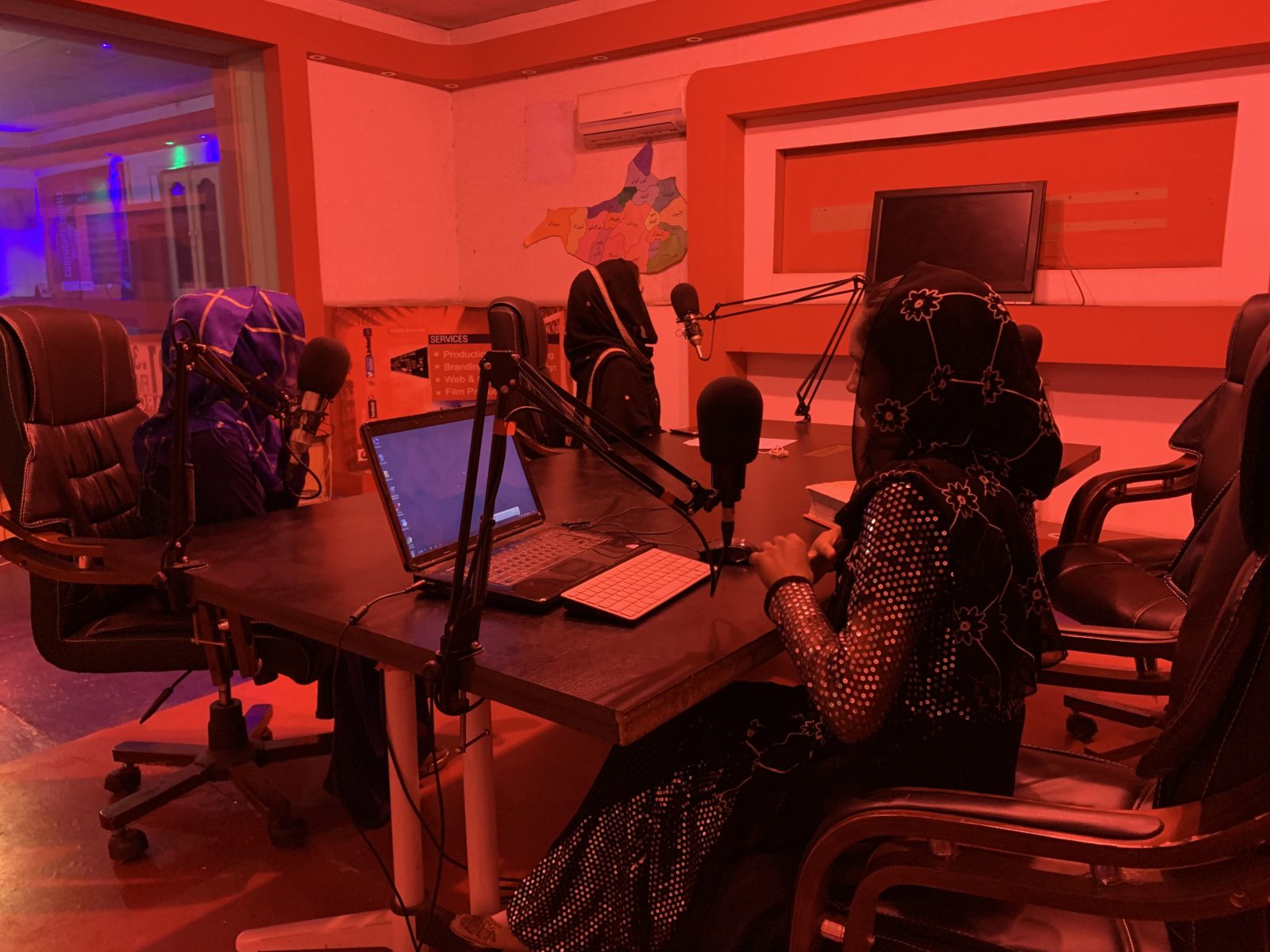
How a Woman Kept Her Radio Station Going in Eastern Afghanistan
An interview with
Shahllah Shaiq
Founder and Owner at Nargis Radio and Heela Organization
Nargis Radio is based in Jalalabad city. It’s founded and managed by women to reach audience in the eastern provinces and change their mindset about the society’s major issues such as women’s rights, education, environment, family, society, etc. Millions of Afghans, especially women, in the eastern and southern regions of Afghanistan listen to the radio. In this interview, the radio’s founder, Ms. Shahllah Shaiq shares her experiences as a female media leader in the conservative men-dominated society in the eastern region of Afghanistan.
what was your childhood like?
I always loved journalism. After marriage, I began writing scripts for my husband’s television and radio programs that made me really understand the difficulties of women in the East of Afghanistan. They even were not aware of their rights. I could not do nothing, so I founded Nargis Radio to give women a voice. Initially, the city’s residents, even our families, were against a radio station that is run by or speaks about women. With support from my husband and brothers, I convinced the so-called resistance movement [chuckles] to back off as we were only broadcasting religious programs initially. Later on, we opened up to more liberal shows.
Why would people resist against a radio?
Conservative cultural beliefs. They believed it’s a sin for women to appear on a radio and discuss religious issues. And obviously, many of them did not want their wrong doings exposed.
How were your programs received once launched?
With a warm heart, especially by women. Our first program was Woman and Society, which I was corresponding [though, with a much better nick name to keep my true identity safe]. As people got used to our programs, more and more women began engaging with us through calling and sharing their difficulties stories. We are challenging the status quo here, and it’s not an easy fight.
Is it any easier to challenge the status quo today?
We wish! It’s never easy for women to lead in Afghanistan. Let me give you an example. In 2015, we had a program talking to girls who were given as bad to husbands. Bad is an obscene tradition and a form of forced marriage when a girl’s family member commits a crime i.e. killing someone, and the poor girl is given to one of the victim’s family members in order for the chain of revenge between the families to stop. We were discussing the tradition and trying to help the women victims through our programs. But guess what? We have survived five assassination attempts so far. One was a Molotov cocktail in our parking lot. Another was a grenade thrown into the terrace of my children’s room followed by firing. We have also received life threats through phone calls. Two of them were rocket attacks on our office. We had to take a break for a while; taking the chance, I pursued my studies [Smiling at the opportunity to continue learning].
Does your family support your work?
Yes! A true Afghan man would do everything he can to support a woman. It’s very brave to do this actually. My husband financially supported the radio station and is always there for us. That’s what makes us different.
“My goal is to help women become aware of their rights. They can only defend themselves when they know their worth.”
What else keeps you busy besides the radio?
I am also the founder and owner of Heela Organization. We do many things to empower women, i.e. train women in journalism (we now have 500 alumni), provide carpet weaving training, collect women’s poetry to publish a book (the name is Nargis Wagma). For this book, we organized a competition for best female poets. It’s inspiring to tell you that the best poet in our competition had sent us her poem behind her family’s back. After her selection as an awardee, her family was surprised to see their daughter’s talents, allowing her to attend the award ceremony in our radio station. The poem is beautifully written in Pashto, but a couple of the stanzas of the poem in English would translate to:
Illiterate Women
That I am an illiterate inmate in the house,
And distressed of not knowing my own rights,
Others reached the moon for knowledge is the light,
But I even can’t get outside home as I’m an Afghan woman,
In this life, I can’t achieve much, Hence I am left behind compared to the others
At Heela, we also have a hotline in our website. When a woman needs consultation, she calls us and we give her the required recommendations.
Why Jalalabad? Despite knowing it’s a very conservative, and at times dangerous, province for your work?
First, I am from Jalalabad. Second, I live among them and understand their problems well. People have a completely different mindset compared to Kabul, Herat, Kandahar or Mazar provinces. I am most effective here.
What programs does your studio cover? Is it a full-time broadcast or half time?
Our broadcast is from 6 AM to 10 PM. Our most popular program is Woman and Society that is being broadcasted live for about 11 years. Immigration Is A Difficult Hardship is for Afghan diaspora that’s being radiocasted live from our Facebook page. The Third Line is a program that aims to fight discrimination in the country. The list goes on. We have managed to keep a diverse group of listeners happy for quite some time.
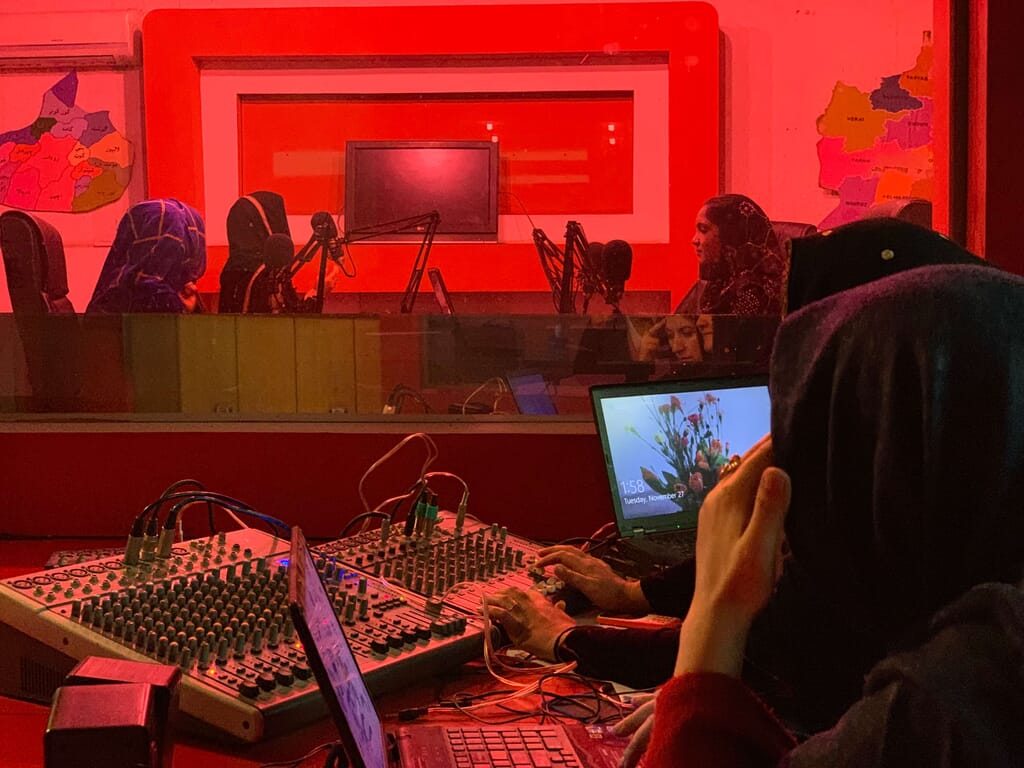
Who are your target audience?
They are often women of all ages. But we persuade men to listen as well, hoping to change their behavior with women. The new generation of men in our target areas, according to our survey, are stricter and more conservative in their beliefs compared to the men of the older generations. That’s alarming, and we are trying to do our part there.
Why Nargis as a name?
Nargis refers to a white-colored, elegant, soft and pure flower. Exactly like women. The flower can be found in Jalalabad everywhere and that’s why we chose it as a name.
“It’s ironic to see it’s easier for our radio to reach America and Europe (i.e. through social media), but so difficult to reach our own people in Afghanistan due to insecurity and cultural barriers.”
How many employees are currently working in Nargis radio?
There are 16 employees, four of whom are volunteers. Having worked for many years, they showed up to office, without hesitation, the day after an attack on our radio station that had ruined everything. As a team, we built it again and kept our voices higher and louder than before.
Tell us about your vision for the Radio?
My goal is to help women become aware of their rights. They can only defend themselves when they know their worth. When a mother is educated, she can change a society by raising wise
children.
Do you receive any funding for the radio?
No funding. Advertising revenue is our main source of income.
Can anything stop you from your work in the radio?
Nothing so far. One afternoon, I was in my house with my children when a Molotov cocktail was thrown to the house. Our house is on the second floor of our radio station. We moved our children to a safe place after the incident. We returned back to our station, but our children did not want to. They were scared, of course. That’s when I thought I should stop the radio. However, my audience and Nargis team gave me the courage and confidence to continue. I always struggle to continue, but see, it has been 11 years that I keep going.
What’s the future of Nargis radio?
Our ambition is to develop our coverage area but due to insecurity it is not possible, at least for now. We found another solution to broadcast through the Internet. It’s working for us: we have four live programs via the Internet that connect us to Afghans in America and Europe. It’s ironic to see it’s easier for our radio to reach America and Europe through social media, but so difficult to reach our own people in Afghanistan due to security and cultural barriers.
When you are out talking to women, what advice do you give them about how to build their businesses? What success tips do you offer?
I always tell our audiences to earn by themselves. Do not waste hours almost doing nothing in home instead start from somewhere no matter how small it might be. You can be an entrepreneur with a handicraft business or aviculture farms.
What is your message for Business DNA readers, especially women who wish to make an impact?
I always tell women I meet not to waste their time doing nothing at home. Earn by yourselves. Once you have an income, no matter how small, your lives will change for good. Just start something, even if it’s from the corner of your home.

